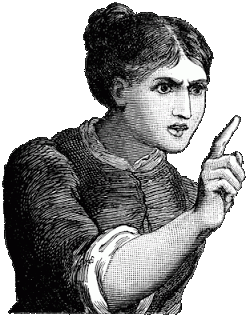 A few weeks ago we had a (double) baptism as part of the main Sunday service and something about the crowd of visitors there struck me that it might be worth trying to get some impression of what they thought about their experience. It's all too easy to assume you know what people are thinking when in fact you have no idea at all. I sent the parents a set of questions and asked whether they might mind forwarding them to their friends and then sending the replies to me. They were kind enough to do so and the responses have just arrived. There aren't many but the impressions that come across most strongly are:
A few weeks ago we had a (double) baptism as part of the main Sunday service and something about the crowd of visitors there struck me that it might be worth trying to get some impression of what they thought about their experience. It's all too easy to assume you know what people are thinking when in fact you have no idea at all. I sent the parents a set of questions and asked whether they might mind forwarding them to their friends and then sending the replies to me. They were kind enough to do so and the responses have just arrived. There aren't many but the impressions that come across most strongly are:1. People felt welcome and comfortable
2. They came out of a desire to support the family
3. They view the Church of England as staid but open-minded
The one remotely critical response was this one:
Q: What (if anything) made you feel uncomfortable about being there?
A: One (somewhat harsh) interpretation of the sermon could be that the children were joining a club, and that those outside of the club were somehow lesser. For instance, there was an insinuation that you could only love, understand and show compassion in a truly profound and meaningful sense if you did this through Christianity. Apart from objecting to this idea, I also feel this verged on compelling people to join the Church. I feel it would be better and as a consequence more appealing to present Christianity as one of the means of gaining this connection with humankind, though not the only means.
Now, one of the problems I faced that morning was how to beat the sermon - one of my year-long series based around the Anglican Catechism, on that occasion framed around the question 'What is my duty to my neighbour?' - into a form even basically appreciable by a baptism congregation. Looking back at my notes this was the line I was apparently taking, though not using these words exactly:
You could easily argue ‘People don’t need religion to be good’ and that’s true. None of the duties in the Catechism require Christian faith in order to carry out: they make sense even from a completely secular point of view. But by insisting that we owe others these duties regardless of how they behave towards us the Catechism points beyond that idea of mutuality and towards something more distinctly Christian, based on the uniqueness of every human being and their identity in God.
The ‘duties to our neighbour’ are only the beginning, in Christian terms. The trust and mutuality they engender are what makes real love and community possible.
I discussed this with Ms Formerly Aldgate. 'Having heard a few of your sermons, you do often seem to be reminding people why they should be Christians, which makes me feel a bit left out' she said.
I suppose it shouldn't be surprising that a Christian priest would want people to be Christians: certainly if I felt Christianity was only one of a series of indifferent moral options I wouldn't want to bother with doing what I do. And I further suppose one shouldn't ask people's opinions if one is going to get huffy about what they say. Yet I have a curious discomfort about making people feel uncomfortable even if I believe in what I've said (although the visitor cited above did conclude their remarks with 'I enjoyed the service. Keep up the good work'!).
Marion the curate gave me a copy of Premier Christianity magazine a few days ago which contains an 'Open Letter to the Churches of the UK' by US-born former pastor of Westminster Chapel, RT Kendall, arguing for the Church to focus on 'the earliest message of the New Testament', 'flee from the wrath to come'. Reading this I find myself reflecting that the heart of the Gospel in Jesus's words 'repent for the Kingdom of God is near' is a positive appeal for people to ready themselves to take part in something wonderful, not a warning to avoid something bad. But perhaps I formulate it like that because, at heart, I really don't like making people upset and have to be absolutely certain I'm right before doing so (on the occasions when I'm not just careless, which are more frequent). I doubt RT Kendall bothers about upsetting people. These fundamentally different sorts of human beings shape their theology, I suspect, around those basic attitudes rather than absolute principle.

Your honesty here illuminates what seems to me a central issue. A religious belief surely involves a belief that it is the truest path, not just one amongst many - however gently that is expressed. Many of us prefer a pick 'n mix approach nowadays. But from "outside" as it were, I value CofE priests being priests for their faith, not apologists for it. Your paragraph starting "You could easily argue" puts it so well. BBC Radio's "Thought For The Day" for you? And - your kindness about not upsetting people locates so much that people still value about the CofE. Though maybe it's no bad thing to upset us just a little, sometimes?
ReplyDelete